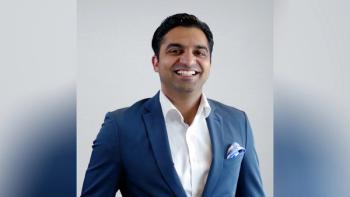
- Pharmaceutical Executive-05-28-2008
- Volume 0
- Issue 0
Google Launches Health Site
Can pharma take advantage of new healthcare data storage sites such as Google Health and Microsoft?s Health vault? Everyone?s curious, but no one?s talking.
Microsoft may have gotten a jump on the competition with the
Launched last week in an early beta mode, Google Health offers users a personal Web site to store their medical records and personal health information. They can also access third party services to learn about particular medical conditions, and relay up-to-date health information to their physicians.
So why is a search engine interested in healthcare?
"Google Health is an extension of Google's mission to organize the world's information, and make it universally accessible and useful," said Missy Krasner, product marketing manager for Google Health. "It puts the user in charge of his or her personal health information, allows them to decide who they want to share it with, and gives them the ability to take their data with them wherever they go," said Krasner.
Under the Google Health privacy policy, personally identifiable information is kept in private user accounts. User-specific, de-identified information such as anonymous log data is restricted, and cannot be shared with third parties. Google may use aggregate, de-identified data to publish trend statistics and associations (similar to what is published in Google Trends)-for example, Google Health users with diabetes who have received flu shot this year.
Massive Opportunity
While many in the pharma industry are watching the Google Health launch closely, some are curious as to how pharma can partner with the search giant. ZDNet writer
However, Google told Pharm Exec that it has no plans to run ads in Google Health at this time. Much like its other products-such as Google Earth-Google Health is free to anyone who uses it.
According to Krasner, once Google Health launches, its APIs will be made public, and any company with a value-add service can review the documentation to integrate. "We will ask, however, that services be transparent to our users about how they use personal health information, and how they comply or align with the Google Health privacy policy," said Krasner.
The Inputting Dilemma
One of the biggest challenges will be how to put decades of medical information online. Inputting by hand could be tedious and off-putting to novices and tech-savvy users alike. To make data entry a bit simpler, Google has partnered with a handful of doctors, hospitals, and retail pharmacy chains that will allow users to download information directly from their healthcare provider to Google Health.
The initial list includes: Beth Israel Deaconess Medical Center, Cleveland Clinic MyChart, Longs Drugs, Medco, MinuteClinic from CVS Caremark, Quest Diagnostics, RxAmerica, and Walgreens Pharmacy.
"Healthcare today has many challenges and problems," Krasner said. "Google Health is not the solution to all of the problems, but this is a good start. We intend to keep growing our interests in health, and we will continue to listen and learn."
Articles in this issue
almost 18 years ago
Survey: Pharma Layoffs Finding JobsNewsletter
Lead with insight with the Pharmaceutical Executive newsletter, featuring strategic analysis, leadership trends, and market intelligence for biopharma decision-makers.




